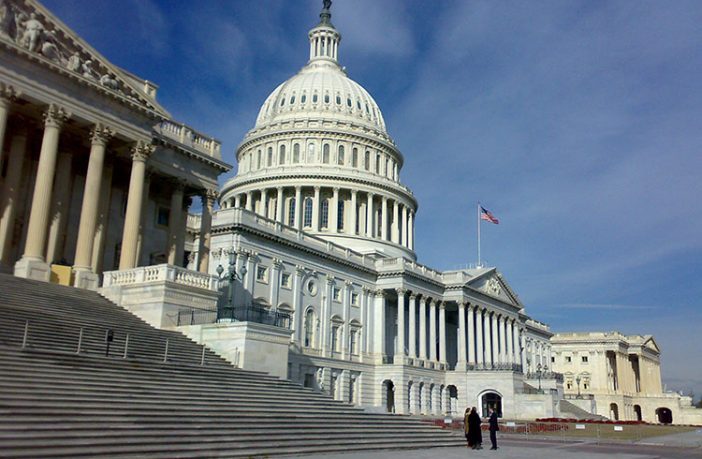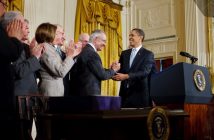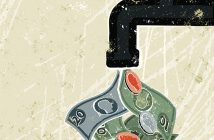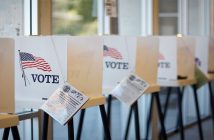The Labor Department reported on Thursday that a record-breaking 3.3 million initial unemployment insurance claims had been filed last week, a staggering and sobering statistic which underscored the devastating impact the coronavirus pandemic has already had on the American workforce. In the short-term, it is certain to get worse before it gets better.
According to estimates released on Monday by the Federal Reserve Bank of St. Louis, the pandemic could result in 47 million lost jobs in the coming months. That translates to an unemployment rate of 32.1 percent, a figure that eclipses the 24.9 percent unemployment rate at the height of the Great Depression. The Trump administration and Congress moved to stanch the bleeding with a third COVID-19 rescue package last week, but there are several important changes policymakers need to acknowledge before they move to phase four.
According to the National Restaurant Association, the industry has lost $25 billion in sales since March 1, while almost 50,000 retail stores have shuttered due to mandatory stay-in-place orders. The third coronavirus legislative package did include some good pro-worker provisions, such as an employee retention tax credit that provides $50 billion to companies that keep paying their employees. More needs to be done and policymakers should take a cue from the 2007-2009 recession.
The American Recovery and Reinvestment Act, which was the “stimulus bill” passed in February 2009, included an important provision added by Sens. Charles Grassley (R-Iowa) and Bernie Sanders (I-Vt.) that placed restrictions on the hiring of H-1B workers.
Specifically, their amendment prohibited those businesses and contractors who had received money from the 2008 Troubled Asset Relief Program (TARP) from hiring H-1B visa holders. The provision also barred companies that violated the rules from participating in the future in the H-1B program. The Employ American Workers Act, unfortunately, was only for two years and limited to businesses who benefited from TARP funds.
In a 2009 letter – aptly titled “Let’s Employ Talented Americans before Employers” – published in the Wall Street Journal, Grassley and Sanders rightly argue that it is not much to “ask that those taking American taxpayer funds first determine whether there are qualified Americans for these jobs and not replace laid-off Americans with temporary guest workers.”
Moving forward, Congress can take a page from those businesses stepping up to meet current needs. Industrial giant 3M has started producing personal protection equipment for hospitals, athletic maker Under Armour is making hospital masks and beer distilleries have started making hand sanitizer. Even in an industry resistant to change, General Motors and other automakers have moved from making cars to making ventilators and medical masks.
American ingenuity and innovative spirit is not only keeping first responders protected on the front lines, but their own workers on the job. Rather than accepting the same excuses year after year from industries such as agriculture and hospitality that they cannot make do without foreign guest workers, they must be incentivized to adapt, adjust and hire Americans. It can be done because Europe is doing it right now.
In Germany, new laws have been passed to encourage people who are on a form of welfare to take jobs in health care and farming. France is initiating a similar outreach because many of the Eastern European migrant workers they rely on have been forced by COVID-19 to remain home. In Britain, the discount supermarket chain Aldi and McDonald’s have teamed up to share employees.
As one German farmer who has been overwhelmed with responses from job seekers told The Wall Street Journal, “There were cooks, waiters, music teachers, physiotherapists, scaffold builders and sales managers. I was completely taken aback.”
Congress does not return to Washington for another week, so there will be plenty of time for agriculture and tech lobbyists to push and cajole lawmakers into believing that the economy will crumble without foreign guest workers or visa holders. But it is abundantly clear that millions of Americans will be in need of good-paying jobs when the pandemic is over, and government needs to start laying the groundwork today to ensure they are hired.




